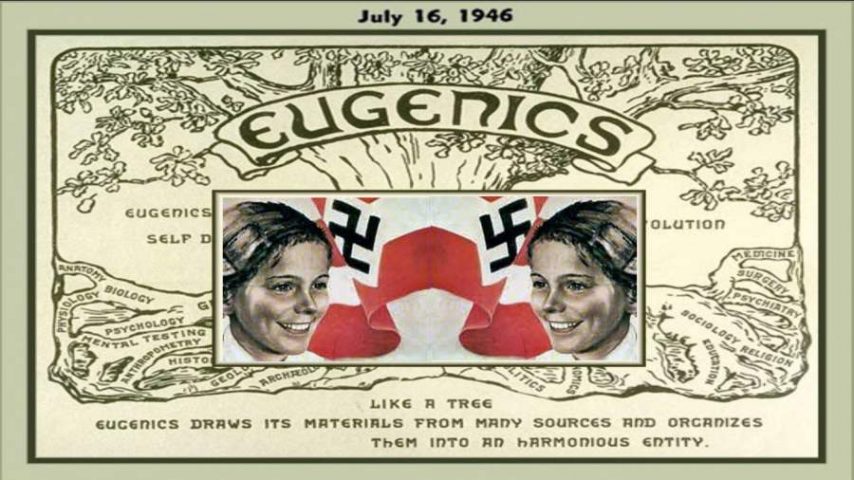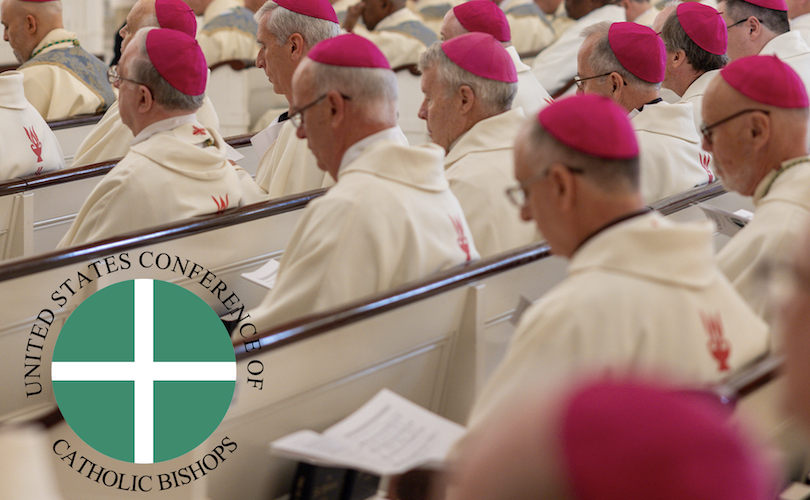Democrats Can’t Decide If They Are Anti-Anti-Pro-Life
August 18, 2017No CBS, Eliminating Down Syndrome Children Is Not Something to Be Proud Of
August 18, 2017
By Jason Jones & John Zmirak, The Stream, Aug. 18, 2017
 We like to swim against the stream. We saw that Christian leaders were rushing to judgment after the Charlottesville riot. And we knew we had to say something. To warn people not to rush in like lemmings. To harvest cheap grace by the bushel basket while making matters worse.
We like to swim against the stream. We saw that Christian leaders were rushing to judgment after the Charlottesville riot. And we knew we had to say something. To warn people not to rush in like lemmings. To harvest cheap grace by the bushel basket while making matters worse.
It’s important to remember the heart of what happened in Charlottesville: The mayor told the police to stand down, and let extremists fight it out in the streets of a U.S. city. One side used home-made flamethrowers. The other side weaponized a car. People died. That’s a failure of law enforcement, first and foremost. Also of political leadership.
Those are the real dangers we face. Not mere bad ideas. Those we’ve had always with us. No, we’re menaced by the collapse of public order and by intolerance on every side. Intolerance of people with different skins colors, of course. But also of people with different ideas, religious beliefs, or political affiliations. The left wants to make ethnic intolerance the only kind that’s disgraceful in America. It’s fine by them to fire, fine, or even imprison Christians who won’t take part in same-sex weddings, for instance.
With all of that said, there’s a very strong case we can make against racism and ultranationalism. In fact we devoted a chapter of 2014 book, The Race to Save Our Century, to doing just that. Here is a shortened, condensed version of what we published then.
Racism and Ultranationalism as Ideologies of Evil
These two forms of collectivism are as old as humankind. Empathy is a challenge for each of us. Thanks to the Fall, it’s natural for us spontaneously to experience fellow-feeling more intensely and automatically toward those who are closely related to us. Racial and ethnic groups can be experienced as a vast, extended family. So outsiders are easy to exclude from the circle of empathy. There are American Indian tribes that refer to their members as “humans.” They use other epithets for non-members. Greeks scorned “barbarians” for their uncouth-sounding speech and alien customs. We could multiply such examples of human fallenness by looking at every continent and century.
Of course, modern biology points the other way. It shows us that by any definition, human beings are a single species. We have roughly comparable qualities and a fixed, common nature. Just a few, insignificant genetic variations separate black from white from brown. Every human being who walks the earth descends from common parents. So the Book of Genesis tells us. The Christian church insisted on this in the wake of Europe’s discovery of America. The church taught the truth of human brotherhood for hundreds of years. Non-Europeans from “primitive” lands proved quite capable of learning European languages. They absorbed its highest culture. Just so, Europeans could learn from the ancient civilizations of India and China.
In the course of the nineteenth and twentieth centuries this crucial truth nearly vanished. Not in the backwoods. In universities. In the most educated countries on earth.
We Knew Better. We Forgot.
So how did we almost lose this common knowledge of human equality? In the course of the nineteenth and twentieth centuries this crucial truth nearly vanished. Not in the backwoods. In universities. In the most educated countries on earth.
What replaced this truth in the minds of millions? A much more primitive, atavistic denial of the humanity of the Other. The most extreme instance of neo-tribalism took place in Nazi Germany. There political ideologues invented a new, brutal religion to serve the invented god of race. But modern, “scientific” racist theory did not begin in Germany.
Breeding Humans Like Cattle
It started in England. With the new pseudo-science, eugenics. Its founder? Francis Galton, cousin and early disciple of Charles Darwin. Galton drew false and careless inferences from the work of his more rigorous relative. He theorized that we could speed up the process of natural selection among humans. Make it more efficient, less painful. How? By arranging that fewer “unfit” people would ever get born, so fewer would “need” to die off.
The method? “Scientific management” of the human breeding stock. Galton pressed “science” into the service of upper-class prejudice. Soon academic conferences in Britain, Germany and the U.S. convened. They explored how the human race could be better bred on the model of pedigree cattle. Academic chairs of eugenics appeared at first-rate research sites like the Kaiser Wilhelm Institute and (in the U.S.) the Cold Spring Harbour Carnegie Institution for Experimental Evolution.
Lawmakers took note. In cold fact, the science underpinning the whole eugenic enterprise was careless, hopelessly biased. It reproduce the prejudices of the researchers. It was wholly insufficient to support such a radical enterprise as remaking the human race. But nobody cared about that.
Sterilizing Americans
By the 1920s, with the support of Margaret Sanger’s Planned Parenthood and funding from health crank and cereal magnate Harvey Kellogg, things were rolling. More than a dozen U.S. states enacted laws requiring the sterilization of “idiots” and “imbeciles.” In practice this meant that American citizens were castrated for flunking a culturally biased (WASPy) I.Q. test. Then the Nazis took over Germany. Now the most literate country in human history remade itself along the lines of an elaborately fabricated, murderous “science of race.”
John Cornwell’s grim study Hitler’s Scientists documents the sad fact: Most of the scientific establishment fell in line with the new political creed. Nazi authorities pointed to American laws as models for their own, even more aggressive racial regime. That happened a full decade before the Nazis even decided on their Final Solution. The defeat of the Nazis helped to expose and discredit scientific racism. But eugenic ideas persisted in America for decades, and the last compulsory sterilization law was not repealed in Virginia until 1974.
In Part II we’ll examine why such pseudo-scientific and anti-Christian ideas proved so appealing.
__________________
Jason Jones and John Zmirak are co-authors of the 2014 book The Race to Save Our Century.
Jason Jones is a Senior Contributor to The Stream. He is a film producer, author, activist and human rights worker. For the past 20+ years, he has worked to defend the most vulnerable — from the homeless on the streets of Los Angeles to persecuted Christians in Africa, from women in crisis pregnancies to victims of “honor killing” in Iran.
He attended the University of Hawaii, after a tour serving in the U.S. infantry. At UHI, he founded the Pro-Life Student Union and served as state chairman of Young Americans for Freedom. Jason would go on to serve as director of Hawaii Right to Life, national youth director of the American Life League, grassroots director of Brownback for President, and public relations director for the world’s largest international pro-life organization, Human Life International. He has appeared in defense of the most vulnerable members of the human family on ABC, Fox, CNN and hundreds of radio programs nationwide.
Jones is the Founder of HERO [Human-Rights Education and Relief Organization], a non-profit that promotes human dignity regardless of ability, age, status, race or geography. He spearheaded a HERO initiative to bring clean water to suffering refugees in South Sudan. In 2009, despite the government’s warning of unsafe travel, Jason visited Darfur and inspected 26 new water wells and distributed $2 million in food, medicine and other aid. He is currently leading an effort to provide emergency aid to the victims of ISIS in Iraq.
Jones was a producer on the 2006 prolife film, Bella, which won several film industry awards, most notably the People’s Choice Award at the 2006 Toronto International Film Festival.
He was the associate producer of the 2008 film on honor killings, The Stoning of Soraya M., which won the NAACP Image Award in 2010 as well as the Los Angeles Film Festival Audience Award in 2009.
His short films include Eyes to See (2010) and Crescendo (2011); Crescendo, whose executive producer was Patti Mallette (mother of Justin Bieber), raised millions of dollars for women and children in crisis pregnancy centers. He was producer in 2012 of the TV movie Mother Marianne: Portrait of a Saint.
Jones lives in Hawaii, with his wife and seven children.
John Zmirak is a Senior Editor of The Stream. He received his B.A. from Yale University in 1986, then his M.F.A. in screenwriting and fiction and his Ph.D. in English in 1996 from Louisiana State University. His focus was the English Renaissance, and the novels of Walker Percy. He taught composition at LSU and screenwriting at Tulane University, and has written screenplays for and with director Ronald Maxwell (Gods & Generals and Gettysburg). He was elected alternate delegate to the 1996 Republican Convention, representing Pat Buchanan.
He has been Press Secretary to pro-life Louisiana Governor Mike Foster, and a reporter and editor at Success magazine and Investor’s Business Daily, among other publications. His essays, poems and other works have appeared in First Things, The Weekly Standard, The Atlanta Journal-Constitution, USA Today, FrontPage Magazine, The American Conservative, The South Carolina Review, Modern Age, The Intercollegiate Review, Commonweal and The National Catholic Register, among other venues. He has contributed to American Conservatism: An Encyclopedia and The Encyclopedia of Catholic Social Thought. From 2000-2004, he served as Senior Editor of Faith & Family magazine and a reporter at The National Catholic Register. During 2012, he was editor of Crisis.
He is author or co-author of six books, including Wilhelm Ropke: Swiss Localist, Global Economist, The Grand Inquisitor (graphic novel) and most recently, The Race to Save Our Century. He was editor of the Intercollegiate Studies Institute’s guide to higher education, Choosing the Right College and Collegeguide.org, for ten years, and is also editor of Disorientation: How to Go to College Without Losing Your Mind.
He is a native of New York City, but now resides in Dallas, Texas.



 We like to swim against the stream. We saw that Christian leaders were rushing to judgment after the Charlottesville riot. And we knew we had to say something. To warn people not to rush in like lemmings. To harvest cheap grace by the bushel basket while making matters worse.
We like to swim against the stream. We saw that Christian leaders were rushing to judgment after the Charlottesville riot. And we knew we had to say something. To warn people not to rush in like lemmings. To harvest cheap grace by the bushel basket while making matters worse.



